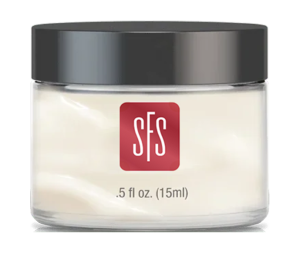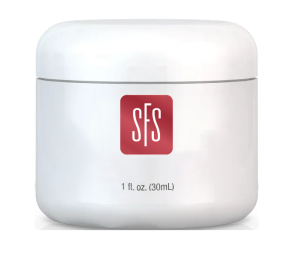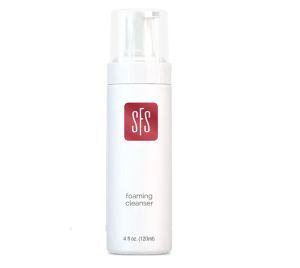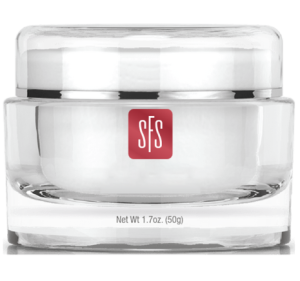How To Dropship Private Label Skincare – A Simple Guide
Welcome to the world of e-commerce, where the entrepreneurial spirit thrives and business opportunities abound. In this era of digital commerce, dropshipping has emerged as a leading business model, allowing business owners to carve out a profitable niche without the overhead expenses typically associated with traditional retail operations.
At the heart of dropshipping is a straightforward concept. As a business owner, you can sell products directly to your customers without having to hold any inventory. Your supplier is the one who handles the product storage and shipping logistics, delivering your orders directly to your customers on your behalf. The result? A streamlined business model with reduced risk and increased efficiency – a compelling proposition for aspiring entrepreneurs looking to make their mark in the e-commerce space.
One particular niche that has shown tremendous promise in recent years is private label skincare. In a nutshell, private label skincare products are those produced by a third-party manufacturer but sold under your own brand name. This means you can offer products that are exclusively associated with your brand, rather than simply retailing products from established brands. This unique selling proposition enables you to stand out in the market, cultivate a loyal customer base, and enhance your business’s profitability.
In this comprehensive guide, we’ll explore the ins and outs of dropshipping private label skincare products. We’ll look at why this venture is worth considering and provide a step-by-step guide on how to successfully navigate this growing market segment. Whether you’re an established e-commerce business owner looking to diversify your product offerings or a newcomer eager to break into the skincare industry, this guide is a valuable resource to help you realize your business goals. Let’s get started.
Why Dropship Private Label Skincare Products?
The appeal of dropshipping private label skincare products can be traced back to three key factors: high market demand, the opportunity to create a unique brand identity, and the potential for higher profit margins.
- High Market Demand
The skincare industry is enjoying a remarkable period of growth, and there’s no sign of it slowing down. According to a report by Grand View Research, the global skincare market is projected to reach a staggering $189.3 billion by 2025. This impressive figure speaks volumes about the growing consumer awareness and interest in skincare products, both of which are driven by the increasing emphasis on wellness, self-care, and the desire for healthier, radiant skin. From cleansers and toners to serums and masks, skincare products have become an essential part of many individuals’ daily routines. As a result, entering this market with your own line of products provides an enticing opportunity to capitalize on this high demand.
- Unique Brand Identity
With private label skincare products, you’re not just selling someone else’s products; you’re selling a product range that is unique to your brand. This allows you to differentiate your brand from the competition by creating products that align with your brand’s ethos and target audience’s preferences. Whether you opt for vegan formulations, cruelty-free products, or organic skincare solutions, your private label products can echo your brand values and stand out in the crowded market. This ability to create a unique brand identity not only attracts like-minded consumers but also fosters customer loyalty, as customers associate the quality and characteristics of your products with your brand alone.
- Higher Profit Margins
Lastly, dropshipping private label skincare products offers the potential for higher profit margins. Since you’re purchasing directly from the manufacturer and selling under your own brand name, you eliminate the costs that come with middlemen. Consequently, you have greater control over your pricing strategy, allowing you to price your products competitively while maintaining a healthy profit margin. As you scale your business, these higher profit margins can make a significant difference in your bottom line, fueling your growth and enabling you to reinvest in your business.
Finding a Reputable Domestic Manufacturer for Private Label Dropshipping
One of the key considerations in your journey towards dropshipping private label skincare products involves selecting the right manufacturer. While there are several options available, both domestically and internationally, choosing a domestic manufacturer that offers private label dropshipping services comes with distinct advantages. You will have to find a manufacturer that also offers fulfillment services such as Simplicity Filling Systems.
The core benefit of collaborating with a domestic manufacturer is reduced shipping times. In today’s fast-paced e-commerce landscape, customers have high expectations for delivery speed. Long wait times can deter potential customers, negatively affecting your conversion rates, and even worse, it can result in unsatisfied customers. Working with a domestic manufacturer can significantly reduce shipping times, ensuring that your customers receive their orders promptly. This not only increases customer satisfaction but also gives you a competitive edge in the market.
Faster shipping times also translate to quicker replenishment of your stock. If a product is particularly popular and sells out quickly, you want to be able to restock as soon as possible to meet demand and maintain positive customer relations. Domestic manufacturers, due to their proximity, can help ensure that your business can respond swiftly to changes in demand.
Another aspect to consider is the ease of communication. Collaborating with a domestic manufacturer eliminates potential language barriers and time zone differences, making communication smoother and more efficient. This can be particularly crucial when addressing any issues that may arise or making changes to your product line.
When choosing a domestic manufacturer for your private label skincare products, it’s vital to ensure they meet your specific requirements. Look for manufacturers who uphold high-quality standards and have the necessary certifications. Verify if they can produce products that align with your brand values – whether that be cruelty-free, vegan, organic, or all-natural products.
Remember, the choice of your manufacturer is a significant decision that will directly impact your product quality and brand reputation. So, take your time to conduct comprehensive research, request product samples, and read reviews or seek recommendations before making a decision.
By choosing a reputable domestic manufacturer for your private label skincare products, you can deliver on your promise of high-quality products and fast shipping times, making your brand more appealing to potential customers and fostering customer loyalty.
Starting Your Dropshipping Private Label Skincare Business
Having explored the reasons to consider dropshipping private label skincare products, let’s delve into how you can get started on your business venture. The journey begins with comprehensive market research, selecting the right products, and finding a reputable manufacturer. You can read our full guide to starting a skincare business here.
- Market Research
The first step in establishing a successful dropshipping business is thorough market research. While the skincare industry offers numerous opportunities, it’s essential to understand your potential customers’ needs and preferences to ensure your product range resonates with them.
Look at consumer trends in the skincare market, paying close attention to growing segments, such as organic and natural skincare, anti-aging products, or skincare for sensitive skin. Also, take note of popular ingredients and formulations that are trending within the industry.
Market research isn’t only about understanding the consumer; it also involves studying your competition. Identify key players in the market and analyze their strengths and weaknesses. What are they offering, and what gaps can you fill with your products? Understanding your competition can help carve out your unique niche in the market.
- Choose Your Products
Based on your market research, it’s time to decide on the range of skincare products you wish to sell. The skincare industry is vast, encompassing products such as cleansers, toners, moisturizers, serums, masks, and more.
Consider your target audience and their skincare needs when making this decision. For instance, if you’re targeting consumers who are passionate about natural and organic products, you might choose to offer skincare products with natural ingredients and formulations.
While it might be tempting to offer a wide array of products, starting with a curated selection can help you maintain focus and manage your resources more effectively. As your brand grows, you can gradually expand your product line.
- Find a Reputable Manufacturer
The next step is to find a reputable manufacturer, and as we’ve already established, choosing a domestic manufacturer can yield significant benefits, if you are based in the US you can contact us to see if we’re a good fit. The quality of your products largely hinges on your chosen manufacturer, making this a critical decision in your business journey.
Ensure your manufacturer upholds high standards of quality and has the necessary certifications. They should also be able to produce products that align with your brand values. For instance, if you’re committed to offering cruelty-free products, your manufacturer should be able to meet this requirement.
Before making a commitment, request product samples to assess the quality firsthand. You should also read reviews or seek recommendations to gauge their reliability and reputation in the industry. A manufacturer that can meet your requirements and maintain consistent product quality will be a valuable partner in your private label skincare business.
4. Build Your Brand
In the highly competitive skincare market, creating a compelling brand is critical to distinguishing yourself from other players and fostering a loyal customer base. Building a brand goes beyond merely selecting a name and designing a logo – it’s about creating a complete identity that resonates with your target audience and communicates your business values.
To begin with, choose a brand name that’s unique, memorable, and relevant to the skincare industry. It should ideally reflect the essence of your business and be easy for customers to remember.
Next, design a logo that visually represents your brand. The logo should be distinctive and versatile enough to be used across various platforms, from your website to your product packaging.
Once you’ve decided on your brand name and logo, develop a consistent brand message. This message should encapsulate your brand values and what you stand for. If, for instance, you’re committed to sustainability, this should be a key message conveyed across all your communication channels.
Additionally, your brand’s visual identity – including color schemes, typography, and imagery – should be coherent and consistent. This consistency helps to reinforce your brand identity every time a customer interacts with your business, whether on your website, social media channels, or through product packaging.
Consider also your brand’s voice. This is the tone and style of your written communication, and it should match your brand’s overall personality. For instance, if your brand is all about fun and youthful energy, a casual and playful tone might be appropriate. Conversely, a brand focused on luxury and sophistication might adopt a more formal and elegant tone.
Building a strong and compelling brand doesn’t happen overnight – it requires thoughtful planning and execution. However, the payoff is substantial: a brand that captures the hearts of your customers, promoting loyalty and fostering long-term business success.
5. Set Up Your Online Store
Having a well-structured, user-friendly online store is crucial for any dropshipping business. This is where your customers will browse your products, make purchases, and interact with your brand. Therefore, ensuring your online store provides a seamless shopping experience is key to driving sales and building customer loyalty.
First, choose a reliable e-commerce platform that aligns with your business needs. There are several options available, including Shopify, WooCommerce, Amazon, BigCommerce, and more. Each platform has its own set of features, pros, and cons, so you’ll need to consider factors like ease-of-use, customization options, payment integrations, and customer support when making your decision.
After selecting your e-commerce platform, focus on designing an intuitive and visually appealing online store. Your website should be easy to navigate, ensuring that customers can effortlessly browse your product range, add items to their cart, and complete their purchase. A complicated or confusing checkout process can lead to cart abandonment and lost sales.
In terms of aesthetics, your website design should reflect your brand identity. Consistency in colors, fonts, and imagery strengthens your brand image and creates a cohesive customer experience. High-quality product photos and detailed product descriptions are also crucial. They not only highlight the features and benefits of your products but also build customer trust.
Don’t forget about mobile optimization. A significant number of online shoppers make purchases through their smartphones. Ensuring your website is mobile-friendly can enhance user experience and boost your sales.
Lastly, consider implementing SEO (Search Engine Optimization) strategies to increase your online visibility. Optimizing your website for search engines can help attract organic traffic, increasing the likelihood of converting visitors into customers.
Setting up your online store requires a careful blend of technical proficiency, design skills, and strategic planning. However, the end result – a robust online storefront that effectively turns visitors into customers – is well worth the effort.
6. Market Your Products
With your products ready and your online store set up, it’s time to focus on marketing your skincare products. Effective marketing not only increases brand awareness but also drives traffic to your online store, resulting in increased sales.
Social Media Marketing is a powerful tool for promoting your products. Platforms like Instagram and Facebook are perfect for showcasing your skincare products, sharing skincare tips, and engaging with your audience. You can also leverage influencer marketing by partnering with beauty bloggers and influencers who can endorse your products to their followers.
Email Marketing is another excellent strategy for keeping your customers informed about new products, special offers, and other updates. Consider sending out a regular newsletter with valuable skincare advice, new product announcements, or exclusive discounts to keep your audience engaged and encourage repeat purchases.
SEO is crucial for improving your online store’s visibility on search engines. By optimizing your website with relevant keywords, you can attract organic traffic from individuals who are searching for skincare products like yours.
Lastly, Content Marketing can help establish your brand as an authority in the skincare industry. This could involve regularly publishing blog posts on your website about skincare tips, product guides, or skincare routines. Such valuable content can attract visitors to your website, improve your search engine ranking, and ultimately, increase sales.
7. Excellent Customer Service
Outstanding customer service is the cornerstone of a successful business. It’s particularly important in the dropshipping business model, where the customer’s interaction is primarily with you, the retailer, and not the manufacturer.
Make sure your customers can easily reach you if they have any questions or issues. This could be through email, phone, live chat, or social media. Respond to queries promptly and professionally, and always strive to resolve any issues to the customer’s satisfaction.
Consider also having a clear and fair return and refund policy. Mistakes and misunderstandings can happen, and a transparent policy can help manage your customer’s expectations and enhance their shopping experience.
Remember, happy customers are likely to become repeat customers and may even refer others to your store. Therefore, providing excellent customer service can significantly contribute to the success and growth of your dropshipping private label skincare business.
Conclusion
Embarking on a journey to dropship private label skincare products is an exciting venture that combines the vast potential of the skincare industry with the efficiency of the dropshipping business model. This blend allows you to leverage growing consumer interest in skincare while minimizing operational costs and complexities.
From conducting in-depth market research and selecting your product range to finding a reputable domestic manufacturer and building your unique brand, each step is an opportunity to shape your business according to your vision. Setting up your online store, marketing your products effectively, and providing excellent customer service are also crucial components that can propel your business towards success.
Remember, creating a successful dropshipping business doesn’t happen overnight. It requires careful planning, consistent effort, and a willingness to learn and adapt. But with dedication and the right strategies in place, you can build a profitable private label skincare business that stands out in the market and brings you a step closer to achieving your entrepreneurial dreams.
Whether you’re an aspiring entrepreneur eager to dive into the world of e-commerce or an established business owner looking to diversify your product offerings, dropshipping private label skincare products presents an enticing opportunity. It’s time to seize this opportunity and make your mark in the thriving skincare industry.
At Simplicity Filling Systems we can manufacture your formula, if you have a project in mind fill out our project form here! You can also check out our products and view our catalogue if you’re looking to get a better idea of pricing.






